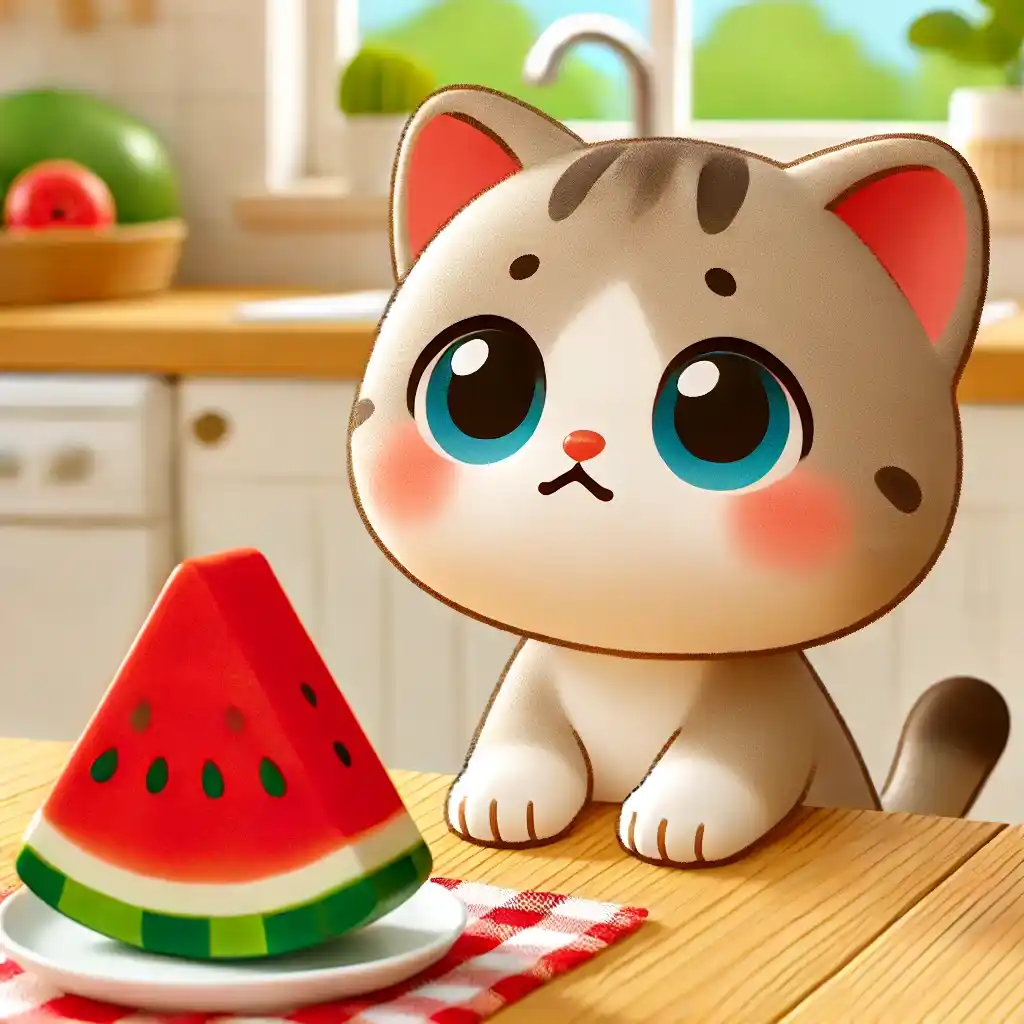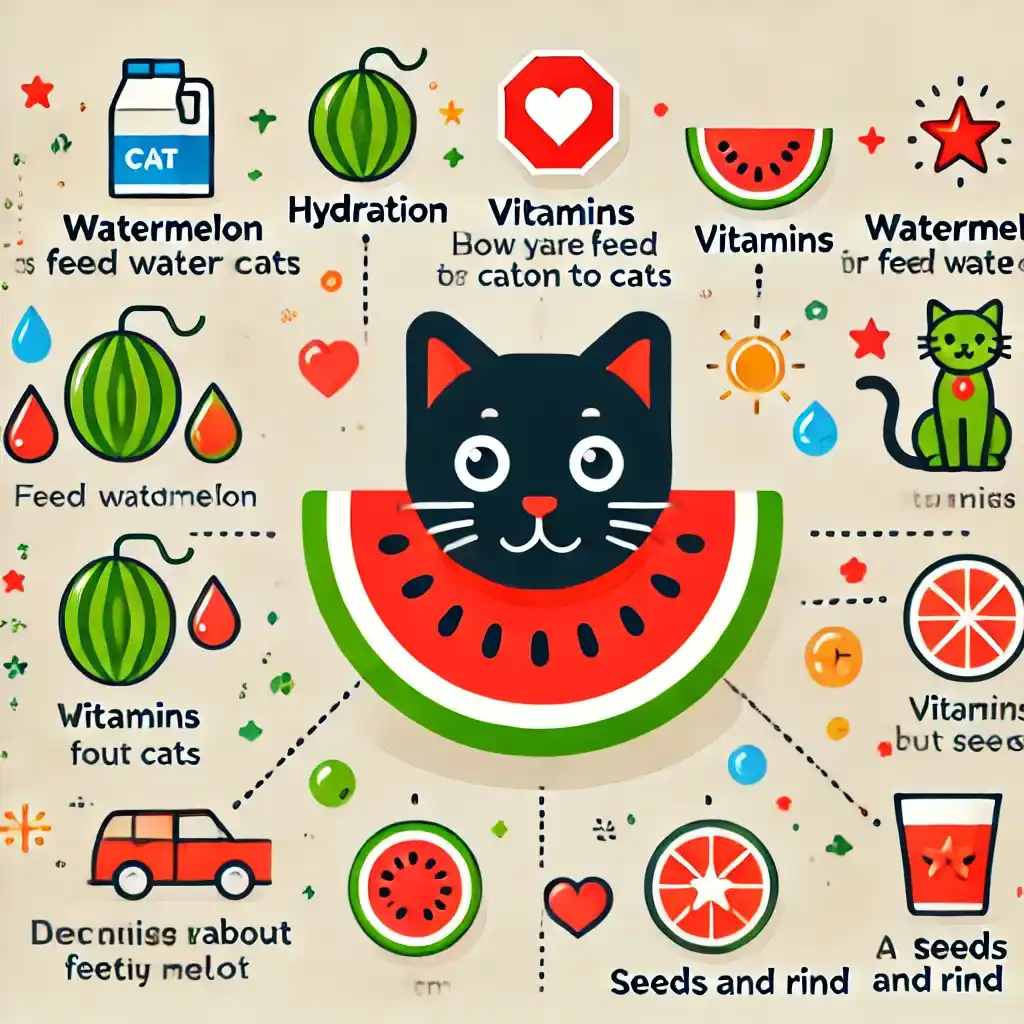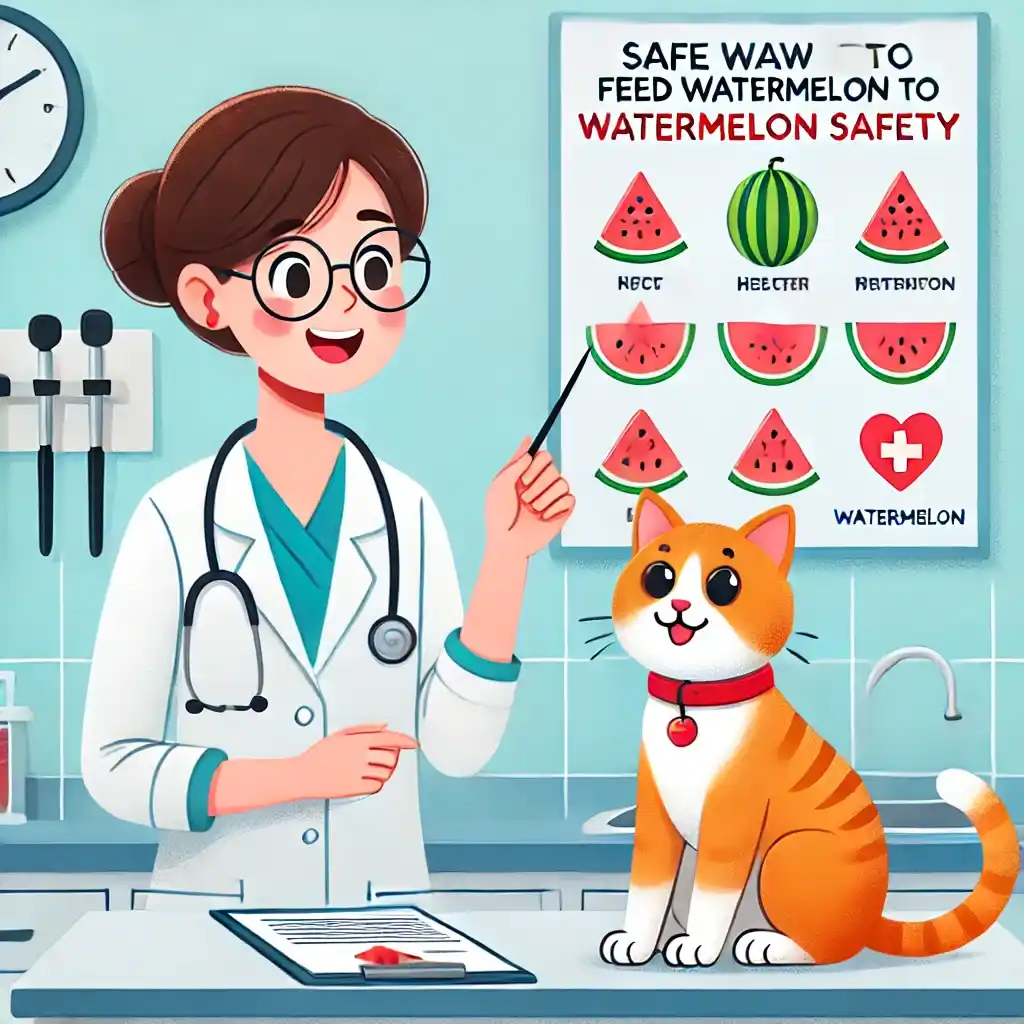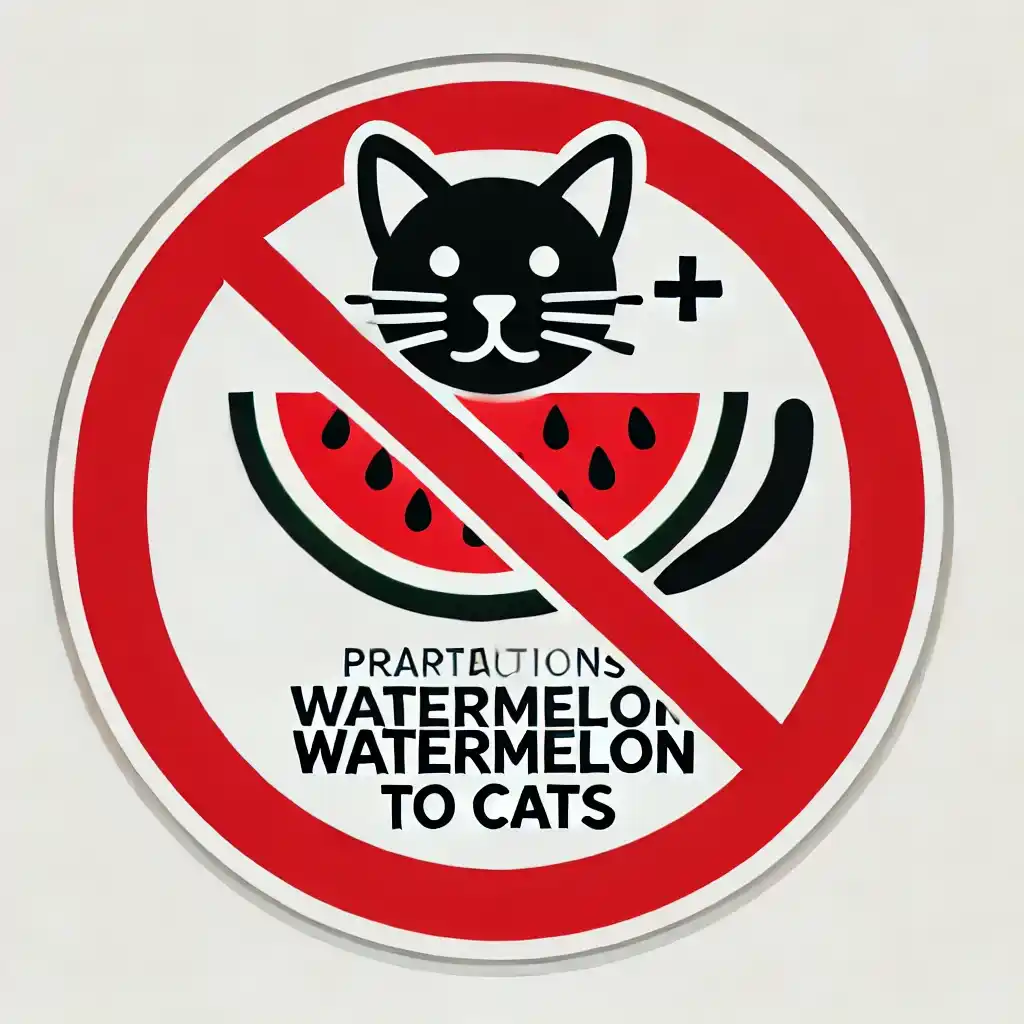Can Cats Eat Watermelon is a question many cat owners have, especially during the summer months when watermelon is a favorite treat. While watermelon can be a refreshing and hydrating snack for humans, is it safe for your feline friend? In this article, we’ll explore the safety, benefits, and precautions of feeding watermelon to cats.
read it: Can Cats Eat Cheese?
Can Cats Eat Watermelon?
Yes, cats can eat watermelon in moderation. Watermelon is non-toxic to cats and can even provide some hydration thanks to its high water content. However, it should be prepared properly and offered sparingly to avoid potential health issues.
read it: Why do cats lick you?
Benefits of Feeding Watermelon to Cats
Can Cats Eat Watermelon for health benefits? Absolutely! Here are some of the advantages:
- Hydration: Watermelon is about 92% water, making it an excellent hydrating snack for cats.
- Nutritional Content: Watermelon contains vitamins like A and C, which can support overall health, though these are not essential for cats on a balanced diet.
- Low-Calorie Treat: For cats with weight concerns, watermelon can be a low-calorie alternative to other treats.
read it: How to Keep F7 Savannah Cat Entertained?
Risks of Feeding Watermelon to Cats
While answering can cats eat watermelon, it’s important to consider the risks:
- Sugar Content: Watermelon contains natural sugars that, if consumed in large amounts, can lead to weight gain, diabetes, or digestive upset.
- Seeds and Rind: Watermelon seeds contain trace amounts of cyanide, which can be toxic, and the rind is tough to digest and could pose a choking hazard.
read it: can you feed fancy feast kitten to adult cat?
Vitamins in Watermelon for Cats
Watermelon offers vitamins that can benefit cats in small amounts:
- Vitamin A: Promotes healthy skin, coat, and vision.
- Vitamin C: An antioxidant that helps boost the immune system.
- Potassium: Supports proper muscle function and hydration.
While these vitamins are beneficial, they are not critical for cats receiving a nutritionally balanced diet.
read it: Are Orchids Poisonous to Cats?
Pros and Cons of Feeding Watermelon to Cats
Pros:
- Hydrating and refreshing.
- Provides vitamins and nutrients.
- A low-calorie snack option.
Cons:
- High sugar content.
- Seeds and rind can be hazardous.
- Not necessary if the cat’s diet is balanced.
What Happens If a Cat Eats Watermelon?
If your cat eats watermelon, it’s generally safe as long as the seeds and rind have been removed. Small, bite-sized portions can provide hydration and a refreshing treat. Monitor your cat for any unusual reactions, especially if they’re trying watermelon for the first time.
What Happens If a Cat Doesn’t Eat Watermelon?
If your cat doesn’t eat watermelon, there’s no need to worry. Watermelon is not a required food for cats, and they receive all necessary hydration and nutrients from their regular diet.
What to Do If Your Cat Eats Watermelon and Has a Problem
If your cat eats watermelon and experiences symptoms like vomiting, diarrhea, or discomfort:
- Remove Access: Ensure the cat doesn’t eat any more watermelon.
- Check for Seeds and Rind: Verify whether your cat consumed any harmful parts.
- Contact Your Veterinarian: Provide details on the amount and parts of watermelon consumed.
- Monitor Symptoms: Watch for worsening signs like lethargy or dehydration.
Table: Can Cats Eat Watermelon?
| Question | Answer |
|---|---|
| Can Cats Eat Watermelon? | Yes, in moderation and without seeds or rind. |
| Benefits of Watermelon? | Hydration, low-calorie treat, and some vitamins. |
| Risks of Watermelon? | Sugar content, seeds, and rind. |
| How to Prepare Watermelon? | Wash thoroughly, remove seeds and rind, cut into small pieces. |
| What If a Problem Occurs? | Remove access, monitor symptoms, and contact your veterinarian. |
Conclusion
In conclusion, can cats eat watermelon? Yes, when prepared properly, watermelon can be a safe and refreshing treat for your cat. Always remove the seeds and rind, and serve in small, manageable portions. While watermelon is not a dietary necessity, it can provide hydration and enjoyment when given responsibly. If your cat shows any adverse reactions, consult your veterinarian promptly. Remember, moderation is key to keeping your feline friend happy and healthy.




